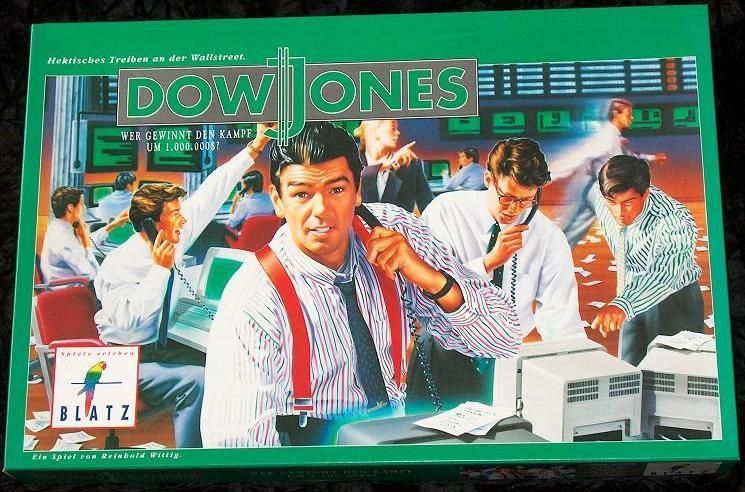Dow Jones (1993) Board Game
The Dow Jones Board Game was released in 1993 and is designed by Hartmut Gärling and Jean-Pierre Kunkel. It is a dice-rolling game that simulates the ups and downs of the stock market. The game is based on the Dow Jones Industrial Average, which is a stock market index that measures the performance of 30 large companies listed on stock exchanges in the United States.
Game Components of Dow Jones
How To Setup Dow Jones
Setup involves placing the game board in the middle, distributing player tokens, and each player receiving a starting amount of money. Stock cards are shuffled and distributed according to the game’s rules. Market fluctuation cards are also prepared for use during the game.
Gameplay Mechanics and Game Objective
Player Experience
Playing a stock market simulation game like “Dow Jones” can be both educational and engaging. Players learn about the dynamics of the stock market, the importance of timing in buying and selling, and how to manage risk. The game can be competitive, with players trying to outmaneuver each other to gain the highest returns.
Pros
Cons
Personal Thoughts on Dow Jones
“Dow Jones” or a similar game is ideal for those interested in economics, finance, and strategic thinking. It is a great tool for teaching students about the stock market in an interactive and engaging way. However, it may not appeal to players seeking a light, casual gaming experience due to its complexity and potential for lengthy gameplay sessions.
We are supported by our audience. When you purchase through links on our site, we may earn an affiliate commission, at no extra cost for you. Learn more.

